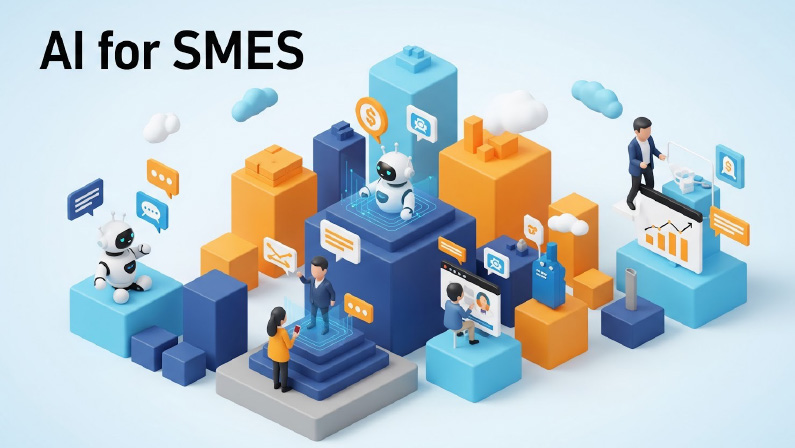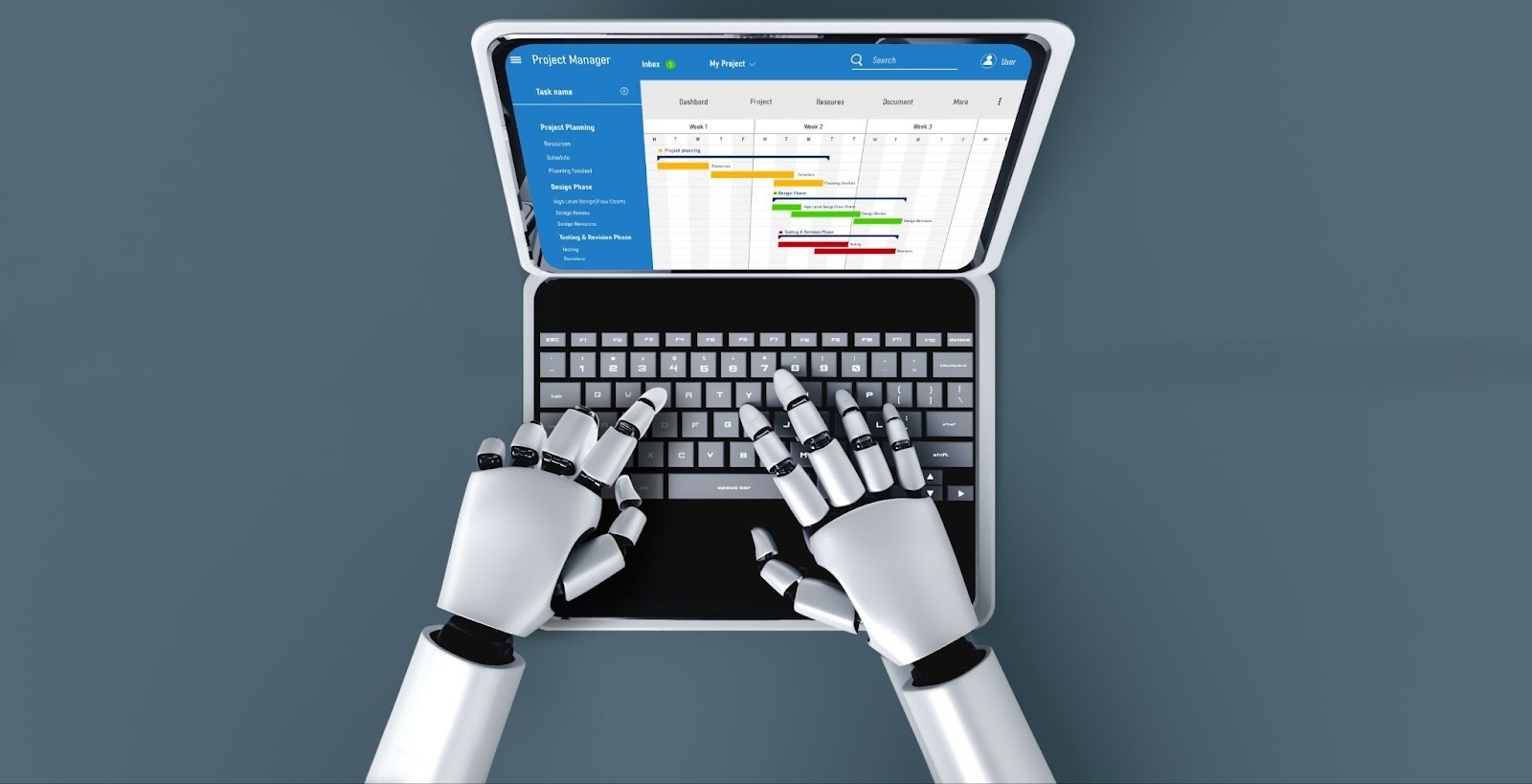
For many small and medium-sized enterprises (SMEs), the dream of seamless collaboration between sales and marketing teams feels just out of reach. Sales teams often chase poorly qualified leads, while marketing departments struggle to prove the value of their campaigns. This disconnect leads to missed opportunities, wasted resources, and slowed growth.
Fortunately, AI for SMEs has the potential to transform these challenges into streamlined processes, improving communication and efficiency across both departments.
The Sales and Marketing Disconnect in SMEs

The disconnect between sales and marketing teams in SMEs is often caused by misaligned goals and communication gaps. Marketing teams may focus on generating a high volume of leads, while sales teams are more concerned with the quality of those leads. Limited budgets and a lack of advanced tools further complicate alignment.
Additionally, data often sits in silos, preventing both teams from seeing a unified picture of the customer journey. This misalignment makes it difficult to close deals efficiently and consistently.
Understanding the Sales-Marketing Gap
Bridging sales and marketing gap issues requires more than simply increasing meetings or pushing teams to collaborate. The problem is structural: marketing teams create campaigns without real-time insights from sales, while sales representatives miss valuable customer behavior data captured by marketing.
This lack of integration not only slows revenue growth but also creates friction between teams. SMEs need smarter solutions that connect strategy, execution, and customer engagement in a seamless flow.
How AI Can Bridge the Gap
Artificial intelligence offers SMEs the tools to unify sales and marketing through smarter insights, improved efficiency, and stronger alignment. By integrating AI into sales and marketing processes, SMEs can turn fragmented workflows into connected, data-driven strategies.
AI-Driven Customer Insights
AI-powered customer insights help SMEs better understand buyer behavior, preferences, and intent. By analyzing large volumes of data from multiple channels, small business AI tools can identify patterns that humans might overlook. This allows marketing teams to refine messaging while sales teams can prioritize leads based on actual interest and readiness to purchase.
Automated Lead Scoring and Qualification
AI-driven lead scoring eliminates guesswork by ranking prospects according to their likelihood of converting. With AI in small business sales, teams can focus on the most promising leads, saving time and improving conversion rates. AI for sales teams ensures that representatives spend their efforts where they matter most, while marketing teams can adjust strategies based on real performance data.
Personalized Marketing and Sales Outreach
Personalization is no longer optional for SMEs. AI for marketing automation makes it possible to deliver highly tailored content and outreach campaigns without overburdening teams. By combining AI sales and marketing integration, companies can craft emails, social ads, and sales pitches that resonate with the specific needs of each lead. This builds stronger relationships and shortens the sales cycle.
Intelligent Sales Forecasting
AI can analyze historical data, seasonality, and market trends to generate accurate sales forecasts. For SMEs, this predictive capability supports better resource allocation and realistic goal setting. By leveraging predictive AI CRM platforms like Leapify CRM, small businesses can make confident decisions about scaling, hiring, and budgeting.
Workflow Automation for Collaboration

AI for SMEs also supports workflow automation that streamlines repetitive tasks across departments. From scheduling follow-ups to updating customer records, AI-powered systems free up time for teams to focus on strategy and engagement. Workflow automation ensures both sales and marketing teams stay aligned and informed without constant manual updates.
Steps SMEs Can Take to Implement AI Solutions
Implementing AI may seem intimidating for SMEs with limited resources, but a structured approach makes adoption achievable. Here are practical steps small businesses can follow:
Step 1 – Identify Business Pain Points AI Can Solve
The first step is to pinpoint where inefficiencies or misalignments occur. For example, are sales teams struggling with lead quality, or is marketing unsure which campaigns generate the most revenue? Identifying these pain points ensures AI implementation is targeted and impactful.
Step 2 – Research AI Tools and Solutions for SMEs
There are many small business AI tools designed for affordability and ease of use. From AI for sales teams to AI for marketing automation, SMEs should explore platforms that fit their industry and goals. Tools like Leapify CRM stand out because they integrate predictive AI CRM capabilities with sales and marketing functions.
Step 3 – Start Small with Pilot Projects
Rather than overhauling entire systems, SMEs should begin with pilot projects. For instance, they might implement AI-driven lead scoring to test its impact before rolling it out across all sales processes. Starting small allows teams to see measurable results without overwhelming resources.
Step 4 – Train Your Team for AI Adoption
AI technology is only as effective as the people using it. Training sales and marketing teams to understand and embrace AI tools is crucial. This ensures employees feel empowered by automation rather than threatened by it.
Step 5 – Ensure Data Quality and Security
For AI to deliver accurate results, the data must be reliable and secure. SMEs should invest in data cleaning and establish clear security protocols. This not only supports effective AI functionality but also builds customer trust.
Step 6 – Measure, Optimize, and Scale
Once AI solutions are in place, SMEs should continuously measure outcomes against KPIs. Adjusting strategies based on AI-powered customer insights allows businesses to optimize their processes. Successful pilots can then be scaled across departments, maximizing impact.
The Future of Sales and Marketing Collaboration with AI
The future of SMEs lies in stronger sales and marketing alignment powered by AI. As AI technologies become more accessible, SMEs will benefit from AI sales and marketing integration that provides real-time visibility, predictive analytics, and seamless collaboration.
Predictive Analytics for Smarter Strategy
Predictive AI CRM platforms empower SMEs to anticipate customer needs, forecast sales outcomes, and identify emerging market opportunities. This enables both sales and marketing teams to make data-driven decisions, align strategies, and focus on activities that generate the greatest return.
Hyper-Personalized Customer Engagement
With AI-powered customer insights, SMEs can create highly personalized campaigns and outreach efforts. Tailored messaging ensures customers feel understood, while sales representatives can approach prospects with the right offer at the right time, significantly increasing conversion rates.
Workflow Automation for Seamless Collaboration
AI-driven workflow automation keeps sales and marketing teams aligned by reducing manual tasks, eliminating silos, and ensuring both teams share real-time updates. This seamless collaboration enhances productivity and allows SMEs to operate more efficiently without straining resources.
Driving Growth Through Predictive AI

SMEs no longer need to view sales and marketing as separate silos. With AI for SMEs, both functions can work hand in hand, supported by small business AI tools that align strategy and execution. By adopting AI for marketing automation, AI-driven lead scoring, and AI for sales teams, SMEs can transform disconnection into collaboration and build a foundation for long-term success.
One platform leading this transformation is Leapify CRM. Designed with SMEs in mind, we offer predictive AI CRM capabilities that help businesses forecast sales more accurately, personalize customer interactions, and streamline workflows across departments. Contact us today!



